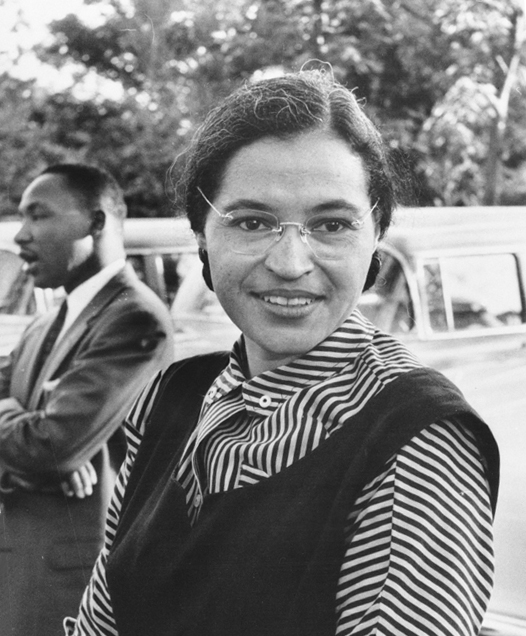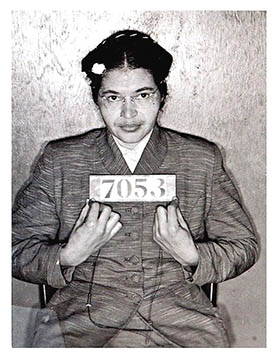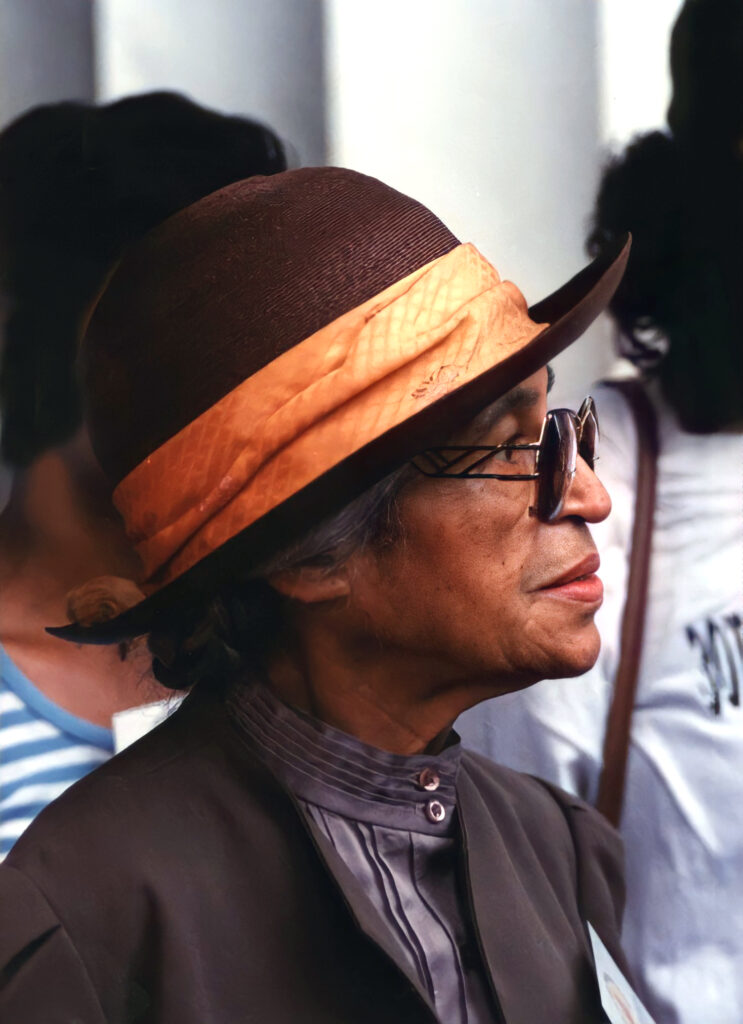Celebrating The Immovable And Remarkable Lady Who Became America’s Unlikeliest But Most Appropriate and Deserving Heroine
It was 68 years ago today when African American woman Rosa Parks stepped aboard a bus in Montgomery, Alabama. She rode that bus right into history and into the pantheon of great American heroes. Let’s honor her wonderful legacy by taking a look at her courageous and inspiring story.
Early Life and Activism
Rosa Parks was born on February 4, 1913, in Tuskegee, Alabama. Her upbringing in the Deep South was dominated by racial segregation and discrimination. Despite these huge

By Unknown Photographer –National Archives
Record Group 306, Public Domain
https://commons.wikimedia.org/w/index.php?curid=4344206
challenges, Parks got involved in civil rights activism at an early age. She joined the National Association for the Advancement of Colored People (NAACP) in 1943 and began working as a secretary for the organization’s Montgomery chapter.
The Montgomery Bus Boycott
Around 6:00 PM on that fateful day of December 1, 1955, Ms. Parks boarded a bus in Montgomery and took a seat. As the bus filled up, the driver instructed Parks and three other Black passengers to vacate their seats to make room for white passengers. The other passengers complied. Rosa Parks did not, stating, “I don’t think I should have to stand up.” She was arrested for her act of defiance which served as a catalyst for the Montgomery Bus Boycott — a pivotal moment in the United States civil rights movement.

By Alabama Department of Archives and History http://www.archives.alabama.gov/mugshots/page76.pdf,
Fair use
https://en.wikipedia.org/w/index.php?curid=11440811
The Montgomery Bus Boycott was a year-long protest against the segregation of public transportation in Montgomery. Organized by Dr. Martin Luther King Jr. — and other civil rights leaders — it galvanized the African American community in resistance to racial segregation and inequality. The boycott was Exhibit A for demonstrating the effectiveness of nonviolent protest and collective action for challenging unjust laws and practices.
Reverberations and Legacy
Rosa Parks’ act of defiance 68 years ago sparked a tsunami of unity, activism and
solidarity among African Americans all across the country. The Montgomery Bus Boycott not only led to the desegregation of public transportation in the city but also inspired similar movements across the United States. Ms. Parks became a symbol of resistance and empowerment for those fighting against racial injustice.

By Kingkongphoto & www.celebrity-photos.com from Laurel Maryland,
USA – ROSA PARKS, CC BY-SA 2.0,
https://commons.wikimedia.org/w/index.php?curid=74924928
Ms. Parks’ defiant stance came to symbolize the larger struggle by minorities for justice, dignity and equality. Her unwavering commitment to equal rights resonated with people of all backgrounds, ages and skin colors. The Supreme Court’s 1956 ruling in Browder v. Gayle ultimately declared segregated seating on buses to be unconstitutional. It was a tremendous victory for the civil rights movement and all persons of goodwill. It cemented Ms. Parks’ legacy as a towering and admired figure in the fight for racial equality.
Ms. Parks received numerous awards and honors In recognition of her contributions to civil rights and to the
nation. These included the Presidential Medal of Freedom and the Congressional Gold Medal. Her legacy will live on in the hearts and minds of those who continue to advocate for social justice and equality, even unto the end of days.
* * * * * * * *
So there you have it. Rosa Parks’ courageous act of resistance on December 1, 1955, clearly and explicitly showed her firm commitment to justice and equality. And it changed the world. By her actions, Ms. Parks inspired countless people all over the world to stand against oppression and to demand equal rights for all. Thank you, Ms. Parks. Your courage and resolve remain a shining inspiration to us all. Your memory shall always be a priceless gift to a profoundly grateful nation.
By Steven Roberts


